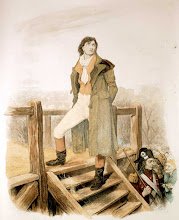
We live in a world which grows ever more dangerous at a time when we have the most capacity in the history of the planet to keep our most precious resources, our children, safe. Yet, we still manage to cultivate children with the capacity to understand what an adult needs to hear.
'Be careful out there!" were the parting words of Michael, my permanent side kick for the past 10 weeks. One last thing I could learn from my stay at the Relief Nursery.
I began my practicum thinking I would be the provider of knowledge as the assistant teacher, instead I was the knowledge receiver from the nine other little assistants. These 'little assistants' were split up between the teachers, Sarah and Diane. Diane and Sarah would set goals for each child, then mark their progress through out the days, weeks and year. Some of these goals would include three word sentences or invite some one to play with them, with prompting from a teacher. The ultimate goal is to encourage the proper skills of communication so the child can function appropriately within society and prevent abuse and neglect. Often, times would arise of one child would take the toy from another and a scream or push would come of it. At this time the phrase "use your words" was offered. Then the child would say 'no!' or 'mine!' and who ended up with the desired object in the end was another story. The point was they should learn to express their feelings in a constructive way for their ages, in this case 18 months to 3 years old.
Because the Relief Nursery is directed towards at risk families, the intervention was not just with the children, but the whole families. This included at home visits once a week by Diane and Sarah. Here, other plans of reconstruction were made, supporting the ultimate goal of encouraging the proper skills of communication, and adapting to each family's needs at the time. I believe this multi-faceted approach is the most holistic way to insure healing of whatever wounds might be effecting each family. That way the children do not lose sight of 'using their words' and other positive skills learned. I think this support system is obvious in some children. I believe Gabby and her mother are an example of this.
The first day, children arrived one by one off the bus or dropped off by their parents. As each child entered they were greeted by Diane or Sarah and asked to put their coat in the cubby, which was directly in front of the door. After which they promptly went to their favorite toy or play area. The last arrival was not this smooth. As I was being guided through each play area by my first friend of the day, Amber, a great wailing was heard down the hall and to the door. I looked up startled and Amber said "Oh, that's just Gabby". Gabby's mother tried to comfort her, but to no avail. Thus her mother left and the wailing intensified. A small crowd of teachers and counselors tried to sooth the aching heart, meanwhile the class went on to the jumping room. Midway through the class the tear stained face would join in, and all attempts were made not to mention "mommy." However, with a classroom of toddlers that subject is hard to avoid!
One day in the jumping room, after reading the book 'No More Monkeys Jumping on the Bed' a call was made to the doctor (pretend doctor). It seems the snake Treven looks after (also pretend) took a liking to my neck. "Oh no," I would yell while holding the wound with my hand, "Call the doctor Gabby!" So she would pick up the phone, and I would prompt her to say 'Snake bite Teacher'. The sentence came out understandable with the exception of 'eacher' to replace my name. Then I would ask her what the doctor said. She would answer with a puzzled look. Then I would prompt, "Did he ask you to tell Treven's snake 'No bite Teacher'?" Her eyes widen and I nodded, then she yelled to the unsuspecting snake "NO BITE EACHER!" This was quite shocking to the snakes' owner as well, obviously being aware that Gabby was not a gabber. Both children being entertained with this, the scene was repeated many times. There she was talking and playing with another child, and I was able to be apart of it. I would try to 'use my words' to explain this feeling of honor and so much more, but it is too overwhelming.
Unfortunately, not every child in our class had this support. My first friend, Amber, slowly disappeared from classes. It started with her diminishing cooperation with others. From her sweet demeanor of sharing, to a slight taste for picking fights. But then her presence was all-together lost. It turns out that her parents were not calling her in sick and the bus would waste the trip there. Soon her bus privileges were lost and her parents were suppose to drive her to the Nursery, and they haven't made that trip yet. With the following week of not showing up her place in class was given to another child.
My sidekick, Michael, was a constant reminder that children are a work in progress. One minute he was using dolls and toys to act out violent scenes, then the next he was a crying puppy who needs shelter, I was often chosen to provide that for him. My time at the Nursery was usually spent with Michael. If I was found playing with another child I was quickly snatched away. I accepted that for most of the term, not wanting to inhibit any reaching out he might be doing, but it became apparent that I needed to encourage him playing with other children. So, as he approached me playing with Brandon one day and said "play with me!" I simply said "I am playing with Brandon right now, but you can join us if you like." Soon we were galloping around on our horses, wearing cowboy hats and calling each other 'partner'. I think Brandon was not completely aware of what we were doing, but Michael was happy with leading and Brandon was a good follower.
As I walked my 'partner' to his bus the last day at the Nursery and sat him is his seat, I explained that I was going home for the summer and would not see him anymore. He looked at me in disbelief. I thought he did not fully understand so I just said a cherry good-bye and took a step towards the door. Then I heard "Stop!" He looked around, as if waiting for the next sentence to pass by so he could quickly snatch it up, too. "Just stop," he said. I took a step back towards him, thinking how hard this good-bye is for both of us, however, making sure to give him time to answer without me putting words in his mouth. Then he warned "It is dangerous out there!" Is he reading my mind? "I don't think you should go." "Why?" I asked. "There is a great big monster over there!" "Ok, then I will go the other way." He thought about that for a moment, then suggested that I fight it for him. As I held back my tears I wondered how many 'big monsters' this little boy had to encounter in his short life. I told him I would take care of this one for him but I know he could get the next one. I wanted to confirm that there are grown ups out there who will protect him but at the same time I wanted to give him the power to protect himself, too. My eyes were filling past the point of being able to hold the tears back. All I could do, then, was give a pleasant wave. He nodded and read my mind again saying, "Be careful out there!"



